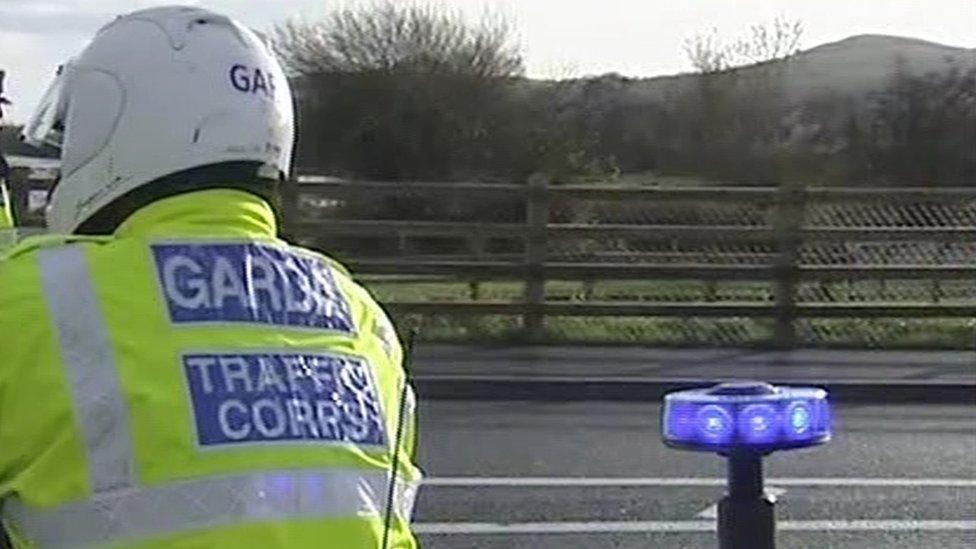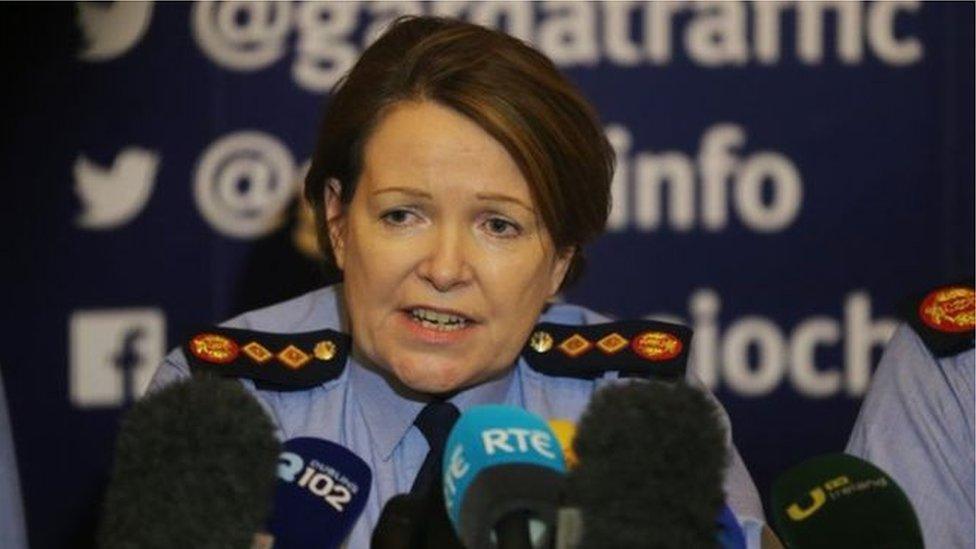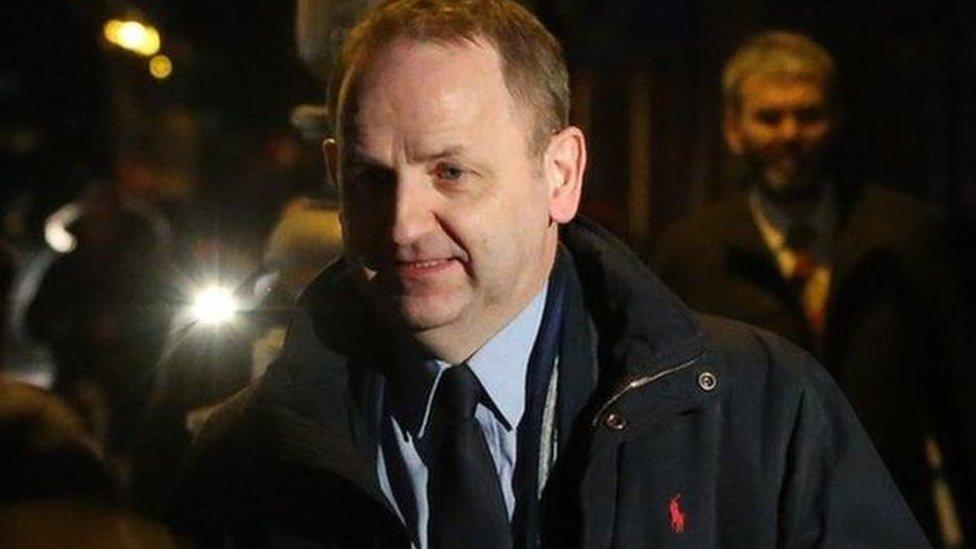Concern over 'fake' drink driving tests recorded by Irish police
- Published

Officers recorded nearly a million more roadside alcohol tests than they had actually carried out in a five-year period up to 2016
Almost one million drink-driving tests recorded by police in the Republic of Ireland did not actually take place, the Irish Labour Party leader has said.
Brendan Howlin called for the head of the force to be replaced after officers admitted to a data "discrepancy".
Senior Gardaí (police) conceded it was likely some of the 937,000 non-existent tests were simply made up by officers.
In addition, they have admitted a separate error that caused almost 15,000 wrongful traffic convictions.
Gardaí have apologised to those affected, but fixing that mistake alone could cost Irish taxpayers millions of euros.
Minister for Justice, Frances Fitzgerald, said the scale of the error was "appalling and staggering".
'Beyond belief'
The details of both problems were released by senior officers on Thursday, when a lot of media attention was being devoted to the Westminster attack and the funeral of Sinn Féin's Martin McGuinness.
The force revealed that about 14,700 people had been prosecuted without a fixed-charge notice first being issued - which was required to bring them before the courts.
Officers now have to appeal all those convictions; have the court-imposed penalties removed; and the state has to cover all costs.
The head of An Garda Síochána (Irish police force), Noirín O'Sullivan, is coming under pressure to explain the mistakes and false breath tests data.

Garda Commissioner Nóirín O'Sullivan is already facing a separate public inquiry over an alleged smear campaign
She was already facing questions over her leadership because of allegations of a smear campaign against a whistleblower, Sgt Maurice McCabe.
Sgt McCabe was one of two officers who raised concerns years ago about the alleged deletion of penalty points from the driving licences of well-connected offenders.
The leader of the Labour Party said the latest controversies were "beyond belief" and had seriously undermined trust in An Garda Síochána.
Speaking to broadcaster RTÉ, Mr Howlin set out his two main concerns: "One, that almost one million breath tests were taken and logged but never happened; and secondly, 15,000 convictions, people prosecuted in court, that should not have happened.
"For every actual breath test that took place, a second in statistical terms was actually recorded as having taken place and that didn't happen at all."
'Scandalous'
Mr Howlin added: "It beggars belief that could happen and there is no answer to it."
"This is not an error," he claimed. "You can't manufacture things that didn't happen and say it's an error."
Jim O'Callaghan, justice spokesman for the main opposition party, Fianna Fáil, described the situation as "scandalous" and said it was "damaging the credibility of An Garda Síochána".
He said his confidence in Ms O'Sullivan will not be assured unless an adequate explanation is given.
In their statement on Thursday, An Garda Síochána said a review of its breath tests data was carried out after concerns were raised in 2015.
Data recorded on the Garda computer system - known as Pulse - was compared against data recorded by the Medical Bureau of Road Safety and a "significant deficit" was identified.
'Questions of integrity'
Officers said the Pulse system recorded 1,995,369 breath tests while the Medical Bureau of Road Safety Data recorded only 1,058,157 tests over the same period.
"There is no one single reason that may account for the discrepancy," the Garda statement said.
It is not the first time in recent months that Garda figures have been dismissed as lacking credibility and trust.
Last September, the Central Statistics Office said that up to one in six crimes were not being recorded by Gardaí on their Pulse computer system, which meant - either intentionally or unintentionally - inflating their crime detection rate.
The Policing Authority, an independent body that oversees the performance of An Garda Síochána said this latest controversy over figures "is not just an academic statistical matter, it is an ethical one".
It also said the controversy "raises serious questions of integrity" for the force.
Child abuse smear
In 2012, Sgt Maurice McCabe was banned from using the Pulse computer system after he accessed records of penalty point cases.

Police whistleblower Sgt Maurice McCabe was the subject of false child abuse allegations
Last month, it emerged under parliamentary privilege that senior Garda officers are accused of spreading a false smear that Sgt McCabe had been liked to a case of child sex abuse.
Commissioner O'Sullivan strongly denies allegations that she was involved in any smear against him.
The accusation against her force is now the subject of a public inquiry, headed by the Supreme Court judge, Peter Charleton.
- Published27 February 2017
